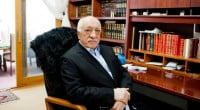Graft probe in Turkey: Path and passengers

Date posted: December 26, 2013
ORHAN MİROĞLU
Prime Minister Recep Tayyip Erdoğan delivered a brief speech to a group at the airport after coming back from Pakistan.
In the speech, he made reference to the journey he took with his companions in the past. The prime minister said: “I am not asking you about the journey. I am asking you about the companions on the journey. What is the journey for if you have no companions? First companions, then a journey. … This is how we went on the journey.”
The Hizmet movement and the Justice and Development Party (AK Party) took the voyage together. Both seemed happy traveling along the same path holding onto the same goals. The Hizmet movement and the AK Party were two major dynamics in the struggle to attain democratic change. Eleven years have passed. Disagreements emerged. The Hizmet movement did not extend its support for the Mavi Marmara incident, the Oslo process or some of the choices made by the government in the field of foreign policy. The Hizmet movement opposed the political choices of the government with respect to the Kurdish question since the Oslo talks. But all these have never led a conflict between the two parties.
In the meantime, Turkey preferred direct talks with İmralı by leaving international actors out of the process. The Hizmet movement remained distant to this process of dialogue with the Kurdistan Workers’ Party (PKK) and Abdullah Öcalan as well.
As a result, more disagreements between these companions emerged after the end of the fight and struggle against coups and the military guardianship. On Dec. 17, the parties took up their positions to fight which could lead to irreversible outcomes. The parting of ways between these companions refers to some sort of loneliness. But it will not be wrong to argue that the Hizmet movement will suffer from this state of loneliness more as time passes by. Other companions still remain on the path together with the government. It is not possible to speculate on whether mass support for the AK Party will decline after Dec. 17 and whether the operations would affect the outcomes of the March 30 elections. The parting of ways also means the pursuit of new alliances. The greatest difficulty for the Hizmet movement, an influential and leading actor in Turkey, is that it represents a fairly different tradition and identity which makes it hard for it to cooperate with another political actor.
If we leave the AK Party-Hizmet movement aside, it could be said that the Hizmet movement has never gotten along with the following political actors and the ideologies they represent:
Republican People’s Party (CHP) — neo-nationalist-secularist circles
Nationalist Movement Party (MHP) — the traditional representative of Turkish nationalism
Peace and Democracy Party (BDP)/Kurdistan Workers’ Party (PKK) — representing the Kurdish political movement
Could the Hizmet movement become a new partner, as a leading civilian and obviously political movement, in a new alliance due to its disagreement with the AK Party? Some think this is unlikely whereas some believe that it is possible.
Maybe making alliances in politics is not something achievable in a very short period of time. But it is obvious that the former companions will be hurt by the current conflict. I am also aware of the great harm that this will do to Turkey as well. The most important political repercussion of the escalating tension between the parties is the fact that democracy and the new Turkey will be left defenseless.
The problem is not to side with the Hizmet movement or the AK Party. No one objects to the fight against corruption. But it is not possible to argue that what has been happening is all about corruption right now.
Tensions should not be escalated or provoked further. I believe that promoting reconciliation is the best option. If you ask whether or not it possible, I would say, “Yes, it is still possible.”
Source: Today's Zaman , December 26, 2013
Tags: Democracy | Hizmet and politics | Turkey |
























